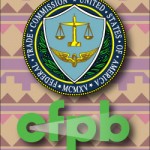A review of recent federal judicial decisions against tribal online lenders shows that they are losing the war--resoundingly.
Arguments under Tuscarora that federal consumer protection laws of general applicability, have fallen flat. Arguments that these tribal enterprises are immune from federal enforcement action (see U.S. v. James), have not surprisingly fared even worse. Tribal sovereignty is being eroded in the process of each federal court controversy.

The tribal online lending industry needs a legal attitude adjustment. Or is it only a matter of time before the industry meets its demise. Instead of throwing traditional federal Indian legal arguments against the walls of federal courthouses, in hope that they stick--they haven't yet--the industry needs to heed lessons learned by other tribes when over-zealous federal agencies like the IRS, FBI or ATF come barreling onto an Indian reservation or into a tribal economy.
Among other non-conventional tribal defense strategies, one that has been deployed effectively against such federal agencies of late is preemptive consultation:
[C]onsultation can be used as a sword—a preemptive strike that forces U.S. agencies to consult before taking action in Indian country—as well as a shield to guard from federal and private attacks on Indian sovereignty. As it stands, several federal agencies freely enforce their prerogative over tribes, under the guise of so-called federal laws of general applicability and increasingly with federal court approval. Still, at each stage of federal encroachment or enforcement, federal law requires consultation with tribal officials.
See e.g. "ATF Withdraws PACT Act FAQs; Downgrades Tobacco Investigations?"
As counter-intuitive as it might be for tribes to bring their enemies close (as Sun Tzu and Michael Corleone both advise), that is exactly what those tribes that are involved in online and are under federal siege, should do in hopes of regaining some battle ground. That is because if the FTC or CFPB violates normative protocols for pre-enforcement consultation between sovereigns, the agency can be sued under the APA and enjoined or stymied from proceeding. This strategy is fully discussed in "The Federal Indian Consultation Right: A Frontline Defense Against Tribal Sovereignty Incursion."
After all, what else, or how much longer, can the tribal online lending industry stand to lose?
Gabriel “Gabe” Galanda is the Managing Partner at Galanda Broadman. He is an enrolled member of the Round Valley Indian Tribes of Covelo, California. Gabe can be reached at 206.300.7801 or gabe@galandabroadman.com.






